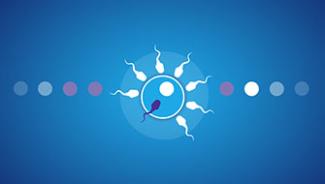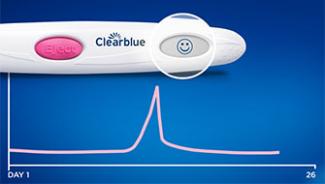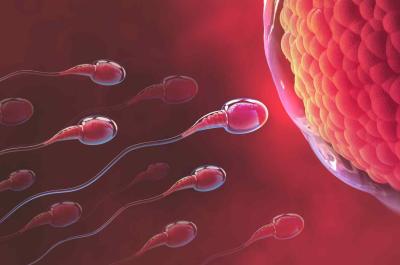
Pregnancy is an exciting journey, but it’s only natural to wonder how long it’ll take to get pregnant, especially if you are over 35. The good news is you can conceive if you’re over 35 and 40, and go on to have a healthy baby, however you may not get pregnant as quickly as you would in your 20s. You may need some patience and a little understanding about your fertility window by tracking your cycles with the help of an ovulation test, but there’s still a fair chance you can have a baby at 35 or older.
Can I get pregnant if I’m older than 35 or 40?
Yes, you can, but you may find it takes a bit longer to get pregnant than a woman in her 20s. Every woman is born with a set number of eggs in her ovaries, and you release an egg every menstrual cycle. If you don’t conceive during that cycle the egg is lost and it’s not replaced. You can read more about how many eggs you have here. If you are older and trying to get pregnant, tracking ovulation and learning about your body is important and may help you get pregnant faster. You can see more about how to identify your most fertile days here.
Professor Bill Ledger, Fertility Specialist
It’s important to move more quickly. Talk to your GP, seek help from a fertility specialist earlier than someone in her 20s,” says Professor William Ledger. You can see more in our video on the effect of age on fertility
What are the chances of getting pregnant after 35 or 40?
When you are aged 30 or less the odds of conception are higher, with the chances of getting pregnant during a single menstrual cycle being nearly 20%. This drops to 5% by the time you turn 402
This drop in percentage per cycle may seem gloomy, but if you look at the percentage rate for conception over a period of a year or two, the numbers are more encouraging.
In the table below, you can see the probability of conceiving in different age ranges over a period of one and two years, assuming vaginal intercourse twice a week3
|
Age category (years |
Pregnant after 1 year (12 cycles) (%) |
Pregnant after 2 years (24 cycles) (%) |
|
19-26 |
92 |
98 |
|
27-29 |
87 |
95 |
|
30-34 |
86 |
94 |
|
35-39 |
82 |
90 |
So as you can see, there is still a good chance of getting pregnant if you’re over 35 – it’s just the older you get the longer it can take. It’s still a good idea to talk to your doctor if you’re over 35 and have been trying for 6 months. If you’re over 40 it’s advisable to talk to your doctor straight away.
How can I get pregnant naturally after 35 and over 40?
If you’re trying to get pregnant after you turn 35, or older, you can maximise your chances of conception by knowing when you ovulate, which is when your ovaries release an egg. One reason why many couples struggle to get pregnant is that 1 in 2 couples may be trying to conceive at the wrong time of the month4. There are only a few days each menstrual cycle when you can get pregnant and your fertile days can vary between cycles. If you know when your fertile days are, it can help you get pregnant faster. Ovulation tests detect the surge of a hormone called luteinising hormone (LH) which occurs 24 to 36 hours before ovulation and identifies your 2 most fertile days. Since sperm can survive for up to 5 days, your fertility window is actually around 6 days, so you may want to invest in a test that also detects a rise in estrogen. This rise in estrogen happens in the days leading up to your LH surge, so identifying these days gives you a wider fertility window giving you more opportunities to get pregnant.
Professor Bill Ledger, Fertility Specialist
Everyone is different and women cannot rely on population averages to understand their own fertility. Understanding when they ovulate is one of the easiest steps that women can take to understanding their fertility, and ovulation tests are the easiest way for women to accurately predict when they will ovulate. Your personal cycle is controlled by your individual hormone levels. I would encourage all women planning to get pregnant to use ovulation tests – the improved understanding of their bodies is emotionally reassuring, and it will help improve their chances of achieving pregnancy more quickly
There are other methods to determine when you ovulate, like taking your basal body temperature or the calendar method. However, many methods only tell you after you’ve ovulated, so it takes time to build up a pattern of your fertility, and since many women have menstrual cycles that vary, this is not the most efficient way to identify your fertile days. When you are over 35, or especially 40 or more, and you want to get pregnant faster, using an ovulation prediction kit can help you identify your most fertile days and increase your chances of getting pregnant quickly5
Is there anything else I can do?
No matter your age, there are some lifestyle changes you can make to help you get pregnant, like:
- stop smoking
- reduce alcohol intake
- take folic acid
- follow a healthy diet
You can also get your partner involved. It takes two to make a baby and your partner can also take a few steps to help boost your chances of conception. Keeping fit and healthy, reducing alcohol, and stopping smoking can help him create healthy sperm. He should also wear loose underwear and avoid hot baths: keeping the testes cool can help with sperm quality. And if you use any lubricant, make sure you buy the “sperm-friendly” variety.
You can see more advice in our article on the top 10 things to help you get pregnant.
Although fertility declines after 35, it is still possible to get pregnant and go on to have a healthy pregnancy. It’s important to see your doctor, get the right prenatal care, and know when you ovulate to maximise your chances of getting pregnant after 35 naturally.
There are, of course, other options to getting pregnant like using an egg donor or freezing your eggs. You can also use IVF (in vitro fertilisation) when a sperm and an egg are combined in a laboratory, and the embryo is frozen and then transferred to your uterus when you are ready. However, fertility treatments depend on many factors like your health and your age when the embryo was frozen. Talk to a fertility specialist and your doctor if you are considering an alternative route like an egg donor or IVF treatment.
- vs not using any method
- British Fertility Society. Age and Fertility (2016).
- National Institute for Health and Care Excellence (2013). Fertility problems: assessment and treatment (CG156)
- Johnson SR., et al. Hum. Repro. (2011) 26: i236
- vs not using any method

Get pregnant naturally
Ovulation tests are accurate and simple to use.

Digital Ovulation Test: pinpoints your 2 most fertile days
In every cycle there are only a few days when a woman can conceive, so having sex on these days is very important if you are trying to get pregnant.


